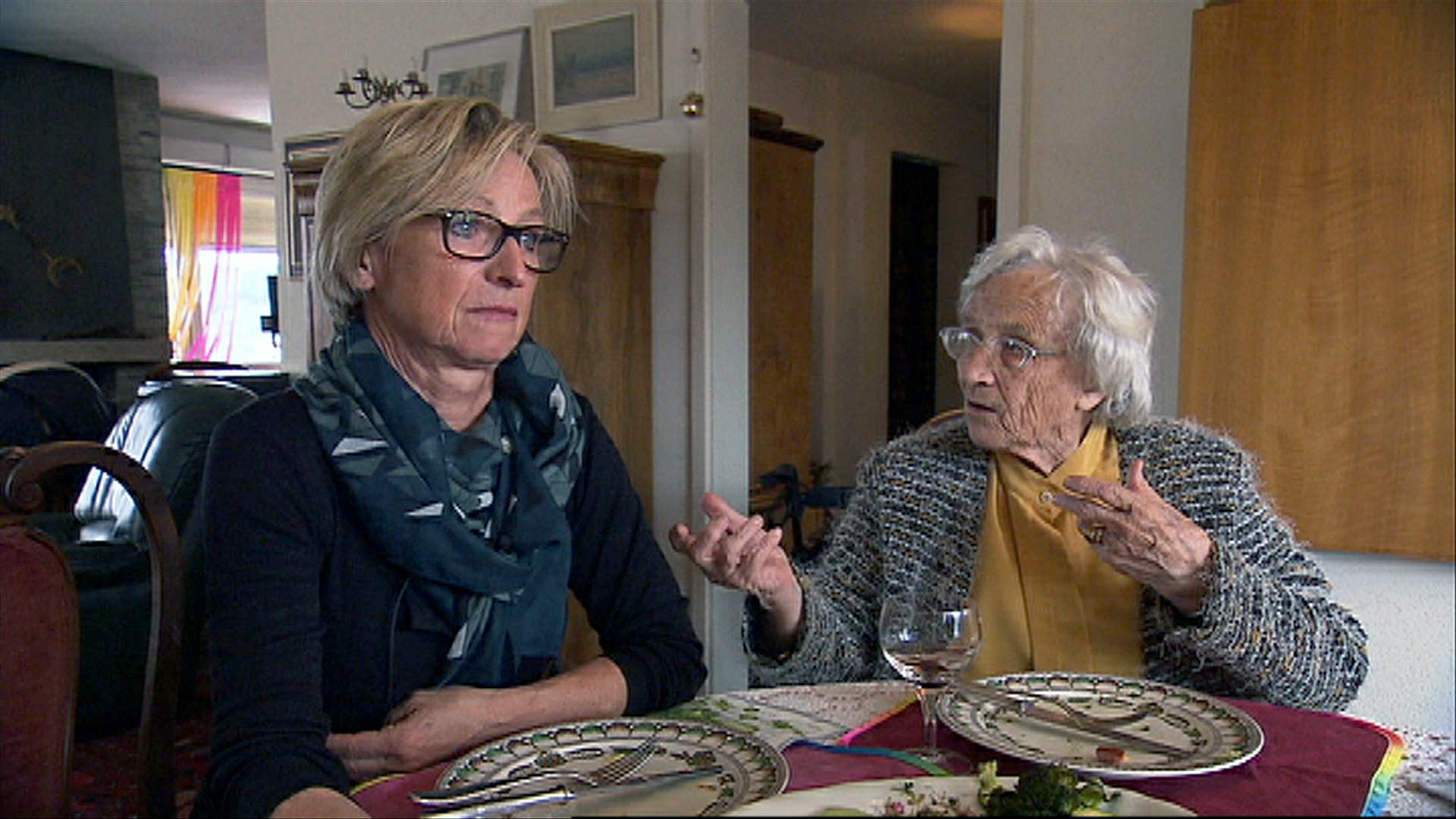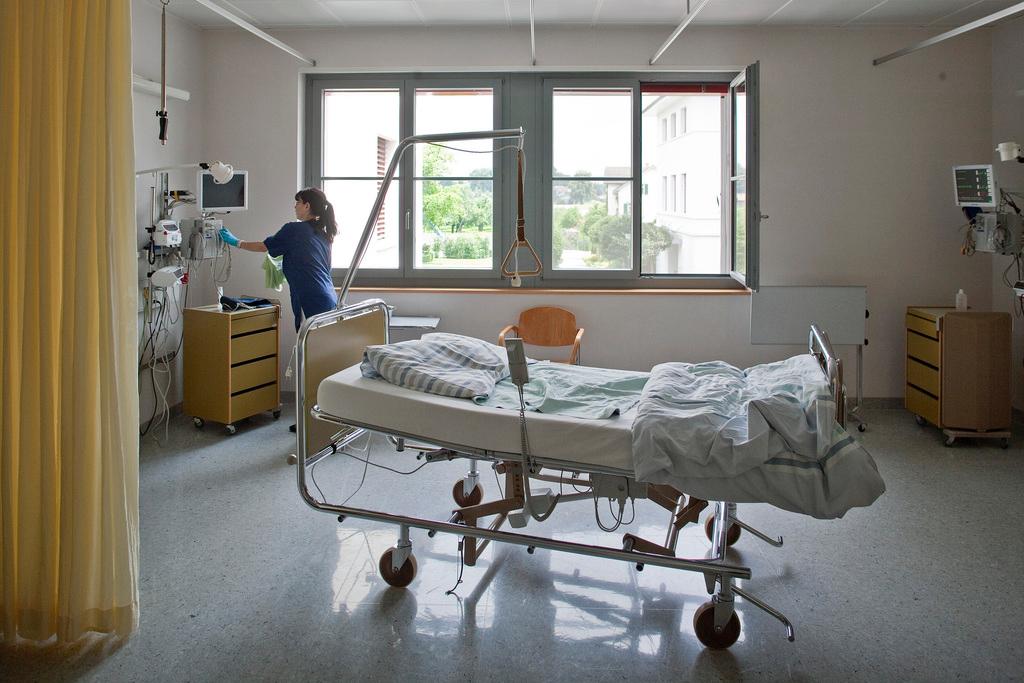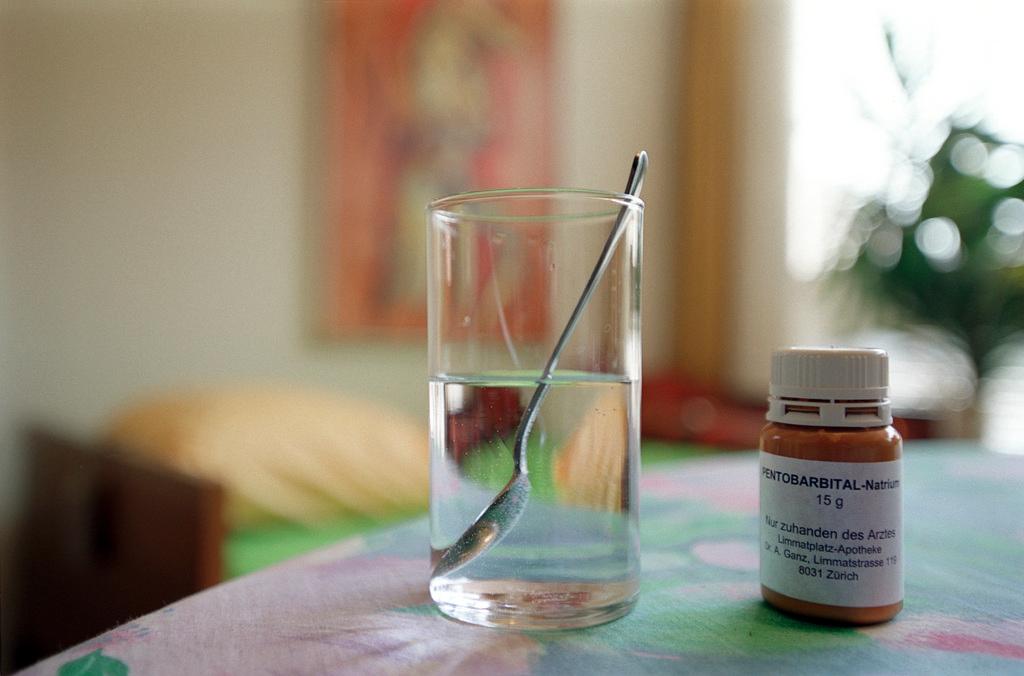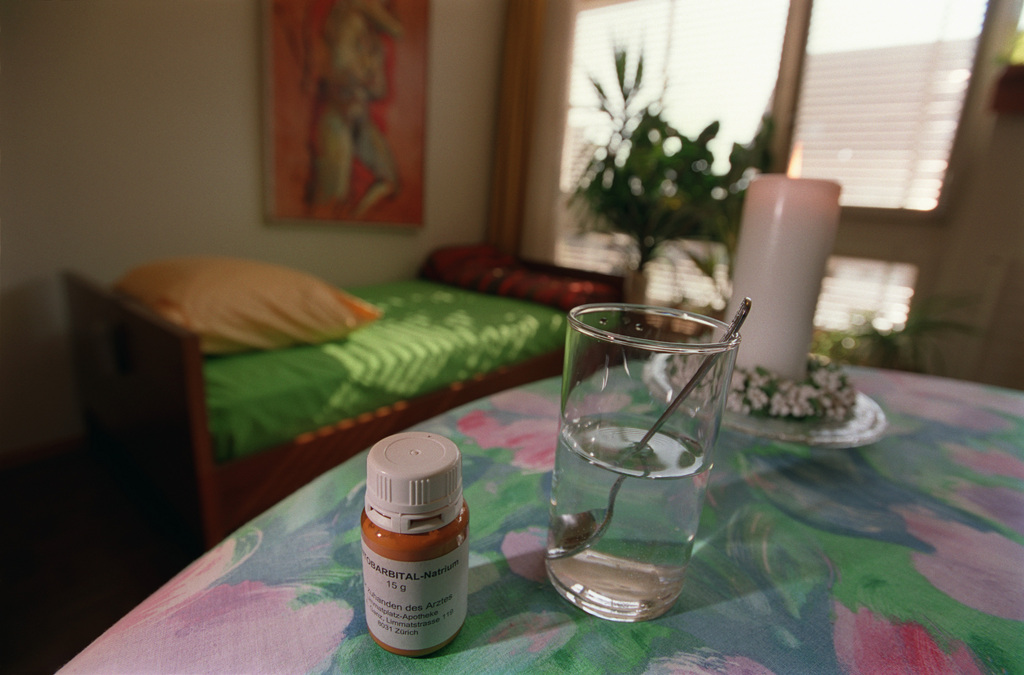Call for new assisted suicide debate is pointless
The president of the Swiss Medical Association, Jürg Schlup, has called for new discussion about a law to regulate assisted suicide, according to an article published in the Tages-Anzeiger newspaper on August 8, 2015.
The catalyst for this was a tabloid report about a 75-year-old former British nurse who described herself as healthy but travelled to Lifecircle in Basel, where her suicide was assisted. Her case is being examined more closely at the moment by the Basel state prosecutor.
Schlup’s demand appears to everyone who has any knowledge in the field of assisted suicide to be akin to the Loch Ness monster, which also tends to surface during the summer lull. The fact that this has been raised by a high-ranking medical official doesn’t improve things. And the fact that he raised it purely on the basis of reports by the notoriously sensationalist and inaccurate tabloid press is all the more questionable.

Parliament decided to end the debate about enacting an euthanasia law on June 29, 2011. Two facts were decisive here: First, the results of two popular votes in canton Zurich, prompted by anti-euthanasia initiatives that were submitted by Christian fundamentalist groups; second, the result of a broad federal government consultation process on the question of assisted suicide.
On May 15, 2011, almost 85% of voters in Zurich – a record high – rejected a popular initiative by the ultra-conservative Federal Democratic Union and the centrist Protestant Party that sought to introduce a general ban on assisted suicide into Swiss criminal law, by way of a regional Zurich initiative.
Another initiative by these two parties was also voted on that day. It aimed to prevent people coming to Zurich from other cantons or countries for assisted suicide. It was also roundly rejected with a 78% “no” vote.
The consultation process initiated by the federal parliament on the question of whether Switzerland should introduce an “euthanasia law” did lead to a majority saying such a law was desirable. Yet a detailed analysis of the results showed that that not one of the possible directions such a law could take was remotely capable of winning a majority.
Further moves by the then justice minister, Eveline Widmer-Schlumpf, would have dramatically limited the right to self-determination of those suffering great pain. Parliament also ascertained that – after more than 30 years of experience legally performing assisted suicide in Switzerland – the existing general laws were adequate protection from abuse, so it drew the correct conclusion and decided to desist from introducing a new law.

More
Who decides when it’s time to go?
Nothing has changed since parliament reached these conclusions, and there are no visible facts which could prompt it to put what has been a pointless discussion back on the agenda.
In the meantime, the Swiss legal situation has also been further clarified by the courts. The view expressed by the Swiss Academy for Medical Sciences – that Swiss doctors can only give prescriptions for assisted suicide to people who will definitely die in the immediate future from a fatal disease – is false. The Basel criminal court maintained that giving such a prescription to an 82-year-old woman who was going blind was justified. The European Court of Human Rights in Strasbourg determined that the academy lacked any mandate to limit doctors’ room for manoeuvre in this area.
Opinion series
swissinfo.ch publishes op-ed articles by contributors writing on a wide range of topics – Swiss issues or those that impact Switzerland. The selection of articles presents a diversity of opinions designed to enrich the debate on the issues discussed.
Yet the legal developments have not yet reached a desirable conclusion. It is necessary to acknowledge, from a human rights perspective, that anyone has a claim to assistance in suicide, at least in a case where he or she has taken impartial advice from experts. This is the only way to dramatically reduce the number of suicides, and above all the number of suicide attempts that fail, with tragic consequences.
Unfortunately, the Swiss Medical Association has so far earned few commendations in the area of preventing suicide attempts. On the contrary. Instead, it looks as though there is little interest in preventing damaging but failed suicide attempts as these bring the “life-maintenance industry” considerable turnover and profit.
Perhaps that is why the IPSILONExternal link “umbrella organisation” of associations to prevent suicide, now housed as part of canton Bern’s health and prevention departmentExternal link, has so far only led a shadow existence. Until a short while ago, its website had been completely neglected since 2008; the newly designed website however still doesn’t recognise the concept Dignitas has espoused of “suicide attempt prophylaxis”.
It seems IPSILON is content if the number of suicides falls; the issue of failed suicide attempts is not interesting. And yet this can still claim the description “protection of life”…
The views expressed in this article are solely those of the author, and do not necessarily reflect the views of swissinfo.ch.
Translated from German by Catherine Hinkley

In compliance with the JTI standards
More: SWI swissinfo.ch certified by the Journalism Trust Initiative





You can find an overview of ongoing debates with our journalists here. Please join us!
If you want to start a conversation about a topic raised in this article or want to report factual errors, email us at english@swissinfo.ch.